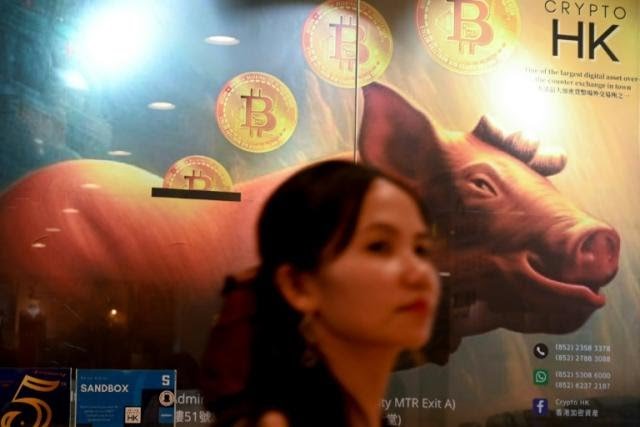Crypto investor Jenny had initially heard about digital assets at a Hong Kong store promoting the cryptocurrency exchange JPEX in the spring. However, by September, she was one of over 2,000 "inexperienced" victims, as per the police, who claimed that the platform had defrauded them.

"My colleagues and friends went all in with our investments," said Jenny, who lost a "six-figure" sum in Hong Kong dollars. "We never thought it would be a scam."
The JPEX scandal has led to 11 arrests of company personnel and associates this week for "conspiracy to defraud," resulting in losses exceeding $175 million for victims.
The downfall of JPEX has raised concerns about Hong Kong's embrace of digital assets, exposing regulatory gaps just three months after the introduction of regulations requiring crypto exchanges to be licensed and meet investor protection standards.
The Securities and Futures Commission issued a warning against the platform, stating that it falsely advertised itself as "licensed" and offered suspiciously high returns. Consequently, JPEX suspended its return-generating products and imposed exorbitant withdrawal fees.
On Monday, the police conducted a high-profile raid on 20 locations, including crypto businesses and private residences, seizing cash, computers, and luxury items. Two telecommunications service providers confirmed on Thursday that they had collaborated with the police to block access to JPEX's website.
Authorities are investigating whether JPEX colluded with influencers and shops to inflate the platform's legal status and the value of JPEX-issued virtual coins.
"Casualties often had a 'fear of missing out' mindset and prematurely believed in advertisements... But there is no such thing as a free lunch," said senior superintendent Kung Hing-fun, describing the scale of the case as "stunning."
JPEX, headquartered in Dubai according to its website, has characterized the regulatory action as "unfair" and "one-sided" and has not responded to multiple AFP requests for comment.
- 'Rogue Players' -
Crypto trading is prohibited in China, but Hong Kong, which has its own financial regulations, received Beijing's backing to pursue ambitions of becoming a digital asset hub.
In contrast, US regulators have cracked down on the sector following the collapse of FTX last year, which resulted in billions of dollars in losses for investors and triggered a "crypto winter."
Kristi Swartz, a fintech lawyer at DLA Piper, stated that Hong Kong faces a challenging balancing act of attracting crypto firms while implementing safeguards to protect retail investors. The licensing system introduced in June targets exchanges but excludes over-the-counter (OTC) brokers—physical businesses that resemble money changers—which Swartz called a "loophole."
Regarding the enforcement actions against JPEX, Swartz said regulators may have been "a bit clumsy perhaps, but I think it's the right message to send."
"Some of these OTC businesses are backed by prominent influencers and host seminars where victims like Jenny are subjected to high-pressure sales tactics."
A Hong Kong crypto entrepreneur, who requested anonymity, revealed that JPEX offered significant incentives to cooperate with OTC shops, including better exchange rates and rewards for referrals and leases.
- 'Reminder' -
On Tuesday, regulators admitted that they "do not have a number on how many OTC shops are actually operating in Hong Kong."
Clara Chiu, a former head of licensing at the SFC, told AFP that such shops were less prevalent when she drafted Hong Kong's fintech regulations in 2019 and were not targeted.
"It is time for us to think about moving forward and expanding our licensing and regulatory framework to OTC crypto shops," Chiu said, citing the stores' more "aggressive" marketing in recent times.
Carlton Lai, head of blockchain and cryptocurrency research at Daiwa Capital Markets, said the scandal "could be a reminder" for authorities.
"More regulations are likely needed for OTC shops, from an anti-money laundering and know-your-customer perspective, but regulating influencers will be challenging," he said.
Despite the crackdown, JPEX announced a "partners profit plan" on its website, allowing users to vote on the company's future. "Even in the face of such abuse and unfair treatment, our platform will continue to operate as usual," it said.